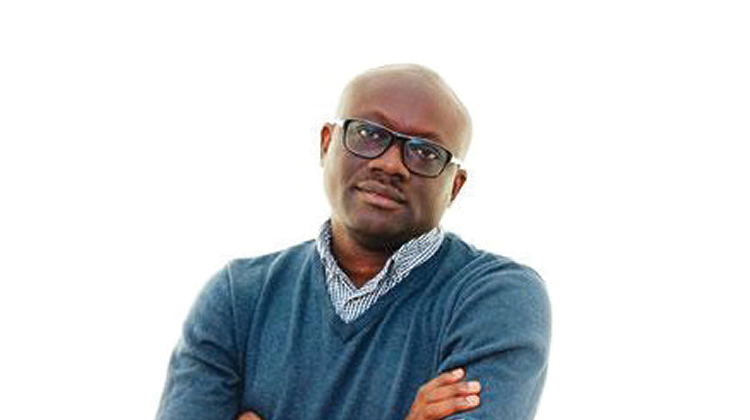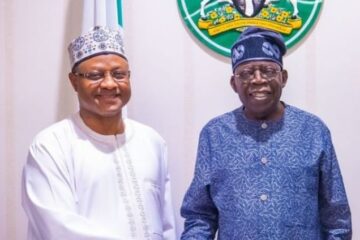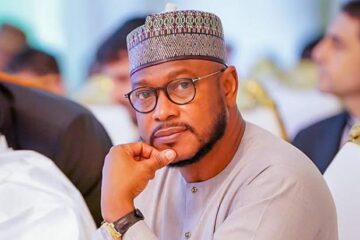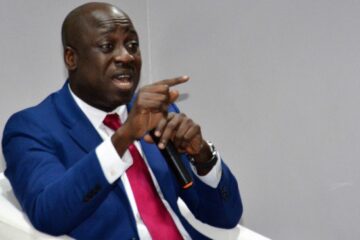
Simon Kolawole
By Simon Kolawole
Nearly 10 years ago, my childhood friends and I bought land in the village. My thinking was that I would, once in a while, spend the weekend at the countryside to experience a different ambience away from the hustle and bustle of Lagos — my home for the past 33 years. I had to abandon the project because of the advent of kidnappings, as well as the collapsed and unsafe roads. Gone are the days when I looked forward to spending time in the village, waking up to the crowing of cocks at dawn, soaking in the clean and fresh air, going with my peers to the Oyi River to “swim” (more like walk inside water), fish and roast yam by the banks. It now looks like these things never happened.
I have an uncle in the village, a local politician, who has been on my neck that I should come home and develop my land. He said politicians were beginning to lust after our plots. I didn’t want to give him my real reasons for abandoning the project because I didn’t want to get into any argument with him. Afterall, I reasoned, he only wishes me well. Because his pressures in the last one year have been much, I finally told him weeks ago that it was not my priority for now, that I would revisit it later. He read me wrong, judging by his message. “Please move close to one presidential candidate. After election, appointments will come. I pray you get an appointment by God’s grace,” he said.
At the time, I was planning to write on ‘Why Do People Sell Their Votes?’ (THISDAY, December 4, 2022), but I got additional motivation for a follow-up piece from my uncle’s prayers. My previous article was heavily inspired by ‘The Voter’, a short story written by the legendary Chinua Achebe in 1965 on the adventures of Rufus Okeke. Umuofia villagers who would ordinarily cast their ballots without monetary inducement suddenly realised the power of their votes: they had seen a lowly teacher become stupendously rich after being elected as a parliamentarian. They wanted a piece of the action. As far back as the First Republic, Achebe had captured the game of cash-for-vote.
My uncle apparently thought that I did not have the means to develop the land and that I was trying to hide my “situation” from him. He began to pity me. He believes the fastest way to make money was to join politics or get a political appointment. That is the mindset of millions of Nigerians.
“Appointment ke? Why?” I replied with a deep laugh.
“It will give you more connections and more money,” he said, ignoring my laughter. “A Senior Special Assistant at the federal level is richer than some state commissioners.”
“Uncle, the highest paid political appointee at the federal level does not earn up to N1m a month,” I replied again, pretending not to understand his unsaid words. “A minister takes home roughly N900,000 per month.”
“But the entitlements—”
I interrupted him. “That figure is everything consolidated, including the monetised benefits.”
“They control the ministry and this gives them more money,” he went on, refusing to surrender.
I thanked him for his concern but said I do not have any interest in public office, either by election or appointment, either today or in the future. I told him the offers I have turned down in the last 20 years, some of which people would kill for. I said as a journalist, I believe I can make good impact on the society and be fulfilled at the end of my life journey. We cannot all be politicians, I declared. To calm him, I said I may not be rich as he prefers but I am comfortable enough to build a house in the village without a bank loan. I was talking to a brick wall. The more I resisted, the more he persisted.
He gave me a long list of politicians he was close to and how they had built houses in Lokoja, Ilorin, Kaduna and Lagos. He was even reeling out the value of each property. In his mind, political offices are the best route to making quick money and living a fulfilled life. How on earth are you going to persuade such a person that he has got things twisted? How would you convince him that the purpose of politics is better seen in the number of children taken off the streets and enrolled in school, the number of households with clean water or the number of women who survive childbirth? Success in office, to him, is the number of property a politician has accumulated.
As long as this mentality pervades our society, votes will continue to be bought and sold. The first target for a serious politician is to win elections. I know there are politicians who are out just to make a statement. I would excuse them from this discussion. For a politician who thinks he or she has a realistic chance of being voted into office, the aim is to win, not to make a mere statement. How would they get the needed votes to take the coveted first position? Some think ideas can convince the voters. They market their pedigrees and resumés and outline a beautiful development agenda for their constituency: “I schooled in Yale. I have two PhDs. I will do this. I will do that.”
However, different things work for different categories of voters. I did identify the different motivations for voting in an article, ‘What Will Determine Your Choice in 2023?’ (THISDAY, November 13, 2022). I tried to analyse the psychology of the Nigerian voter. I said there are four broad interests among the voting population (which are not mutually exclusive): one, some vote because of the material gain; two, some because of the ideological bent; three, some because of the primordial emotion; and four, some because of the political affinity. Nigerians who are impressed with PhD from Yale do not appear to be in the majority and they are the least likely to demand cash.
What most politicians have found out is that, like Chief The Honourable Marcus Ibe in ‘The Voter’, people have expectations before casting their votes. If you do not play the game, your opponent will play it. More so, voters have figured out that most politicians will make plenty money in office, so they expect upfront payment. Many politicians too have figured out that they would make plenty money — “free money” as we call it — if they get elected to office. So, they have concluded, either consciously or unconsciously, that contesting for an election should be seen as an investment. It is like setting up a company or buying shares. Put in the capital: there is risk and there is reward.
In an Interview with Sunday Punch in June 2004, Senator Adolphus Wabara, then senate president and currently chairman of the Board of Trustees of the Peoples Democratic Party, was brutally honest about this. He said that “membership of the National Assembly is an investment because most of us sold our houses to get to the Senate… the maturity is there but it is the ability to recoup whatever you spent legitimately that is the problem.” He was widely criticised for saying the obvious. Why would anybody sell land, houses and cars to run for an election if there is no chance that he or she would recoup the money? How many contest elections in Nigeria for God’s sake?
The benefits of holding political office in Nigeria are enormous. You will have the coat of arms on your business cards. That is a licence to do and undo. You can run the red lights. You can drive against traffic. You can park beside “No Parking” signs. The perks of wielding political power are unlimited: 4WD vehicles wailing with siren everywhere; police orderlies helping to carry your mobile phones and polish your shoes; your bills picked up by the public treasury; first pick of choice jobs in government agencies; plus the little matter of billions at your disposal. As icing on the cake, there is little or no accountability. These are more than enough motivations to win elections by any means.
A senator who was elected to the National Assembly in 2011 went there with a list of what he called “legislative agenda for national development”. A very brilliant man, he articulated his vision impressively to his friends and said he was going to make a difference and inspire a new thinking in the federal legislature. After his first three months in the National Assembly, he came back defeated. “Ol’ boy,” he told his pals, “Nigeria is not ready for development. Since I got into the senate, all we have been discussing is money. The most common expression is: have you got the alert? If this is the road to development (he pointed to his right), this is where we are facing (he pointed to his left)!”
Back to the question: why do so many politicians buy votes? No matter the number of perspectives we bring to bear, the fundamental answer is: because they want to win an election. Since winning is a licence to a wonderful world, some would do anything it takes, even if it means selling their mothers. Some are also thinking “everybody does it” so why should they be left out and classified as stingy by the voters? For as long as voters are ready to sell their votes — to satisfy existential needs, for instance — there would always be a booming market. For as long as political offices offer wealth without work, politicians will always be desperate to win elections by any means necessary.
We can come to some compromise that spending money does not guarantee winning. Many political analysts would argue that the role of money is overrated. More often than not, most voters have made up their minds on who to vote for before the D-Day. They would naturally expect the candidate to cater for logistics, feeding and “voting allowance”. I agree. But that does not diminish the fact that votes are still bought and sold and the buyers think it is an investment whose reward would be huge. If my uncle thinks I will start building houses by getting a political appointment, that says a lot. Therefore, in designing campaigns against voter inducement, we must not ignore this fact.
Culled from TheCable











